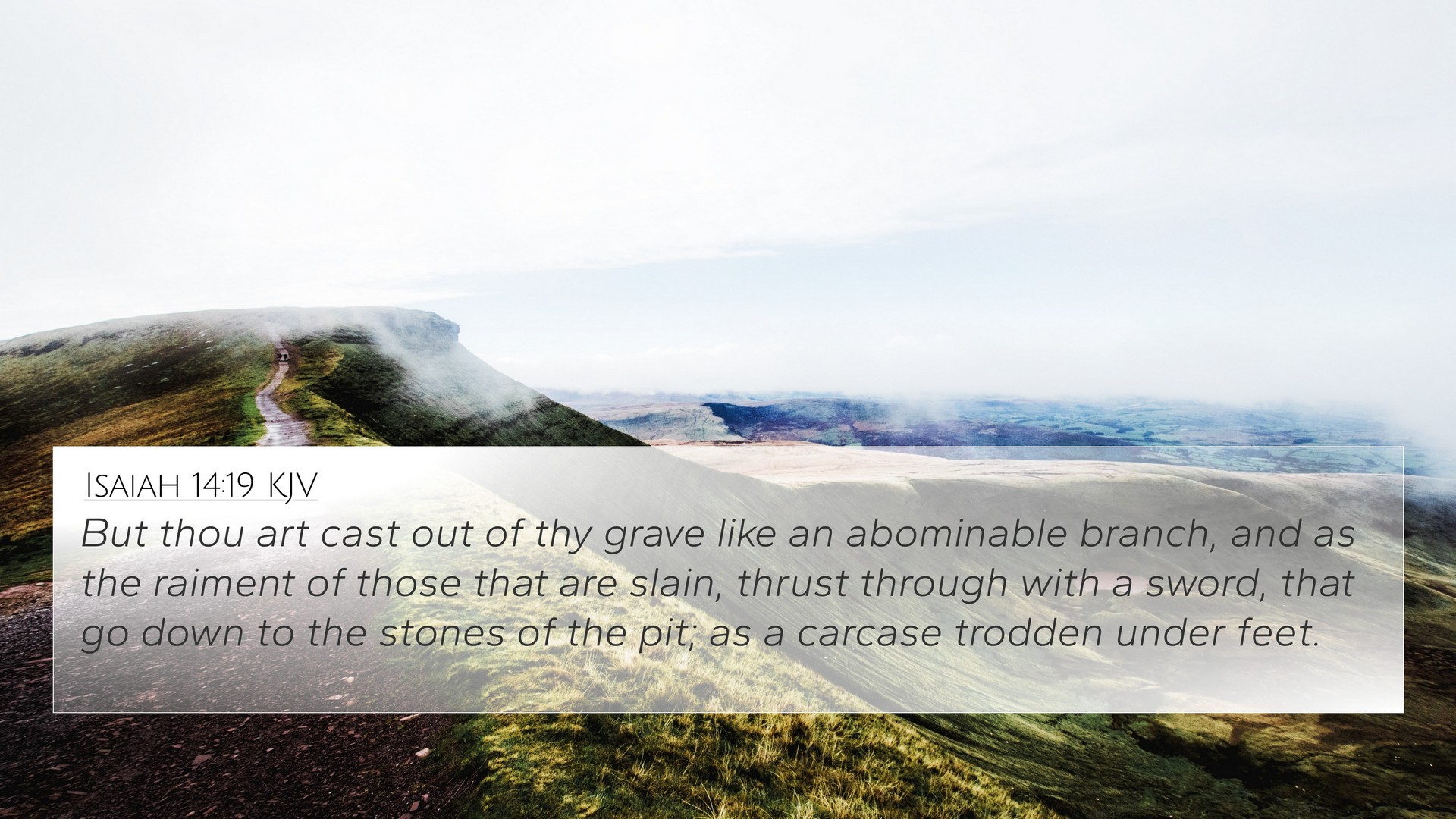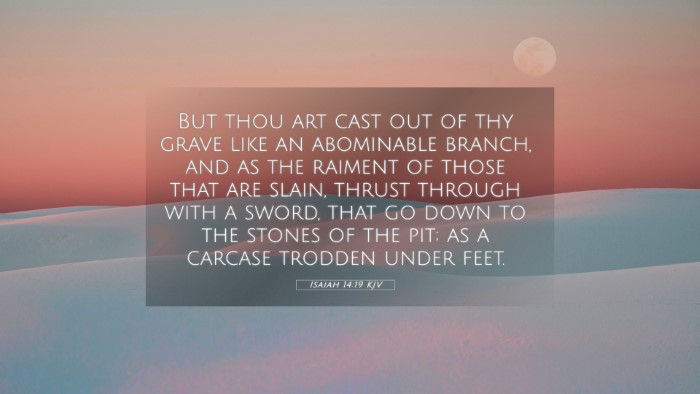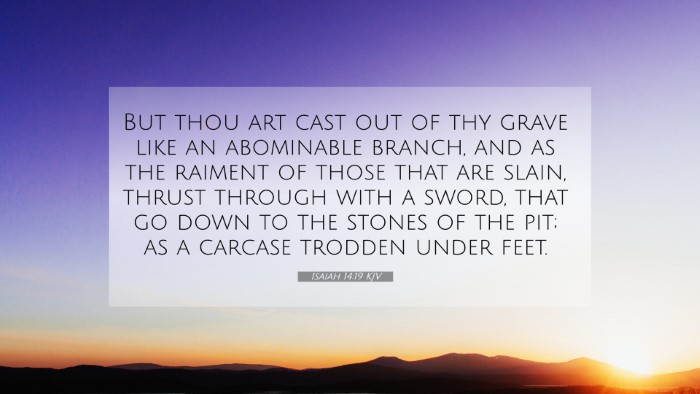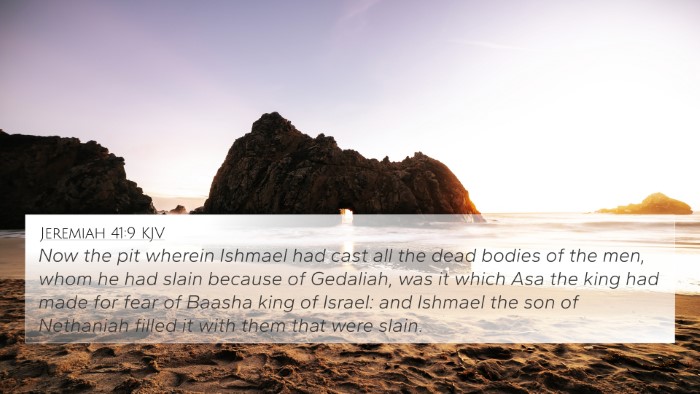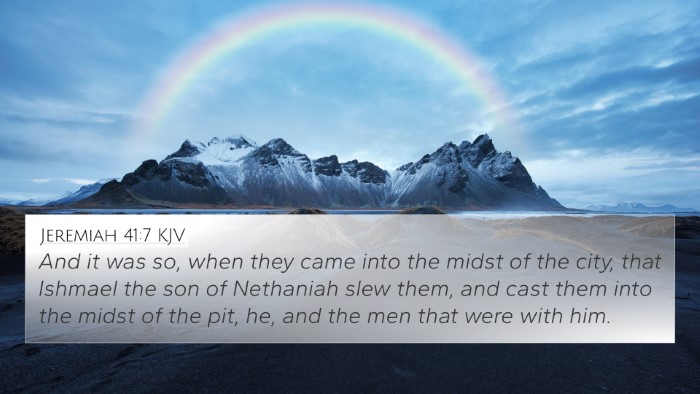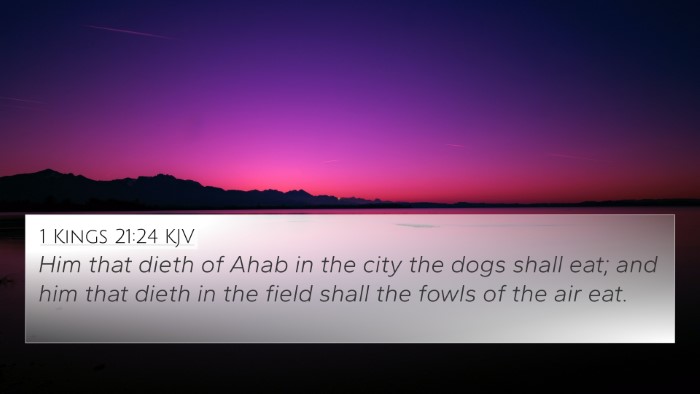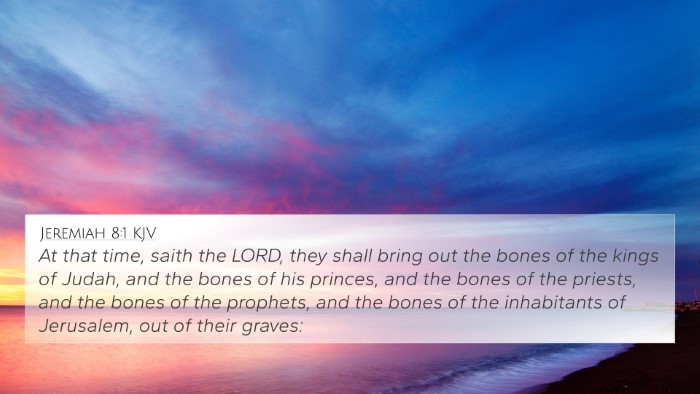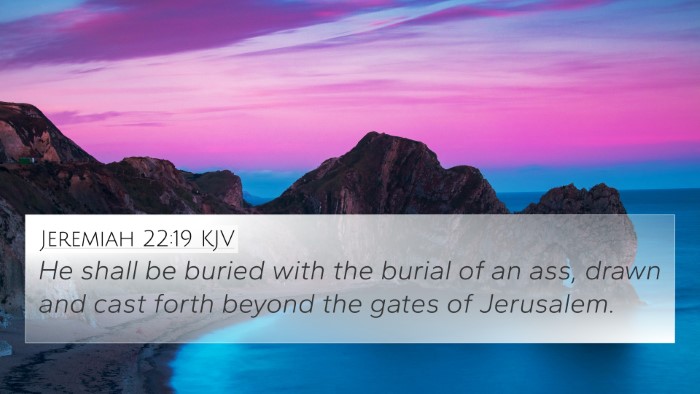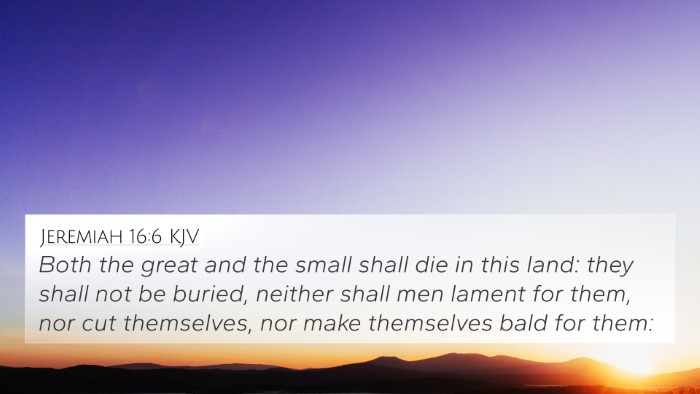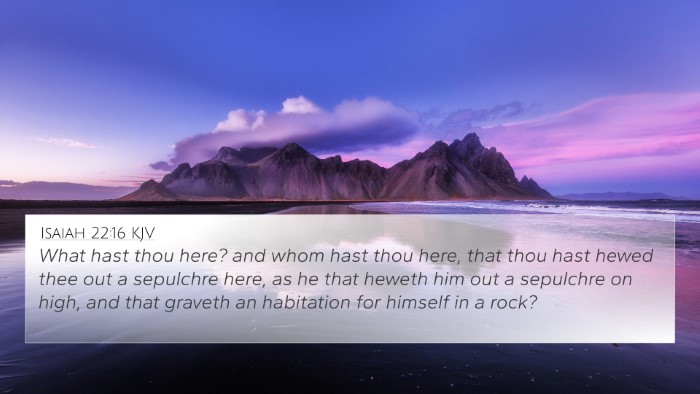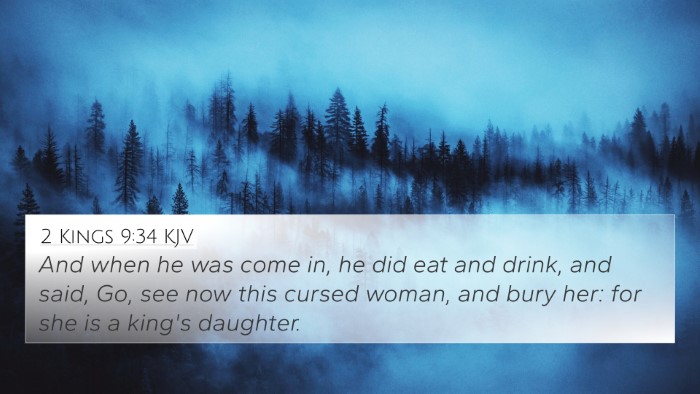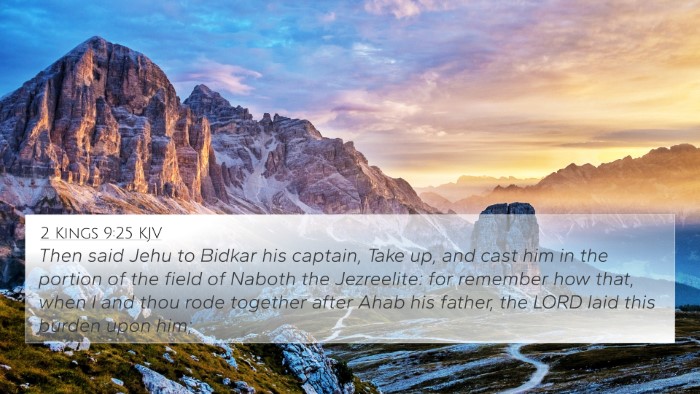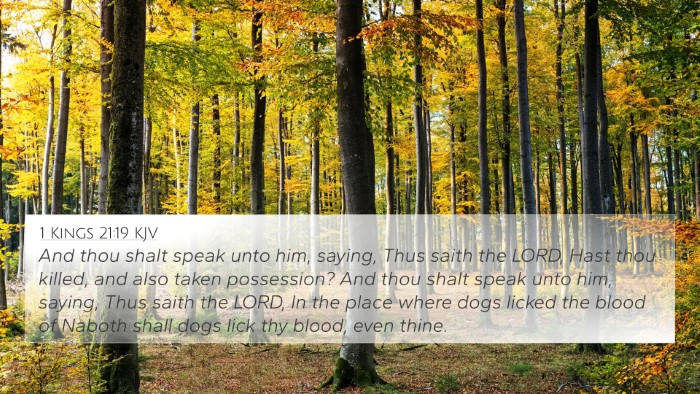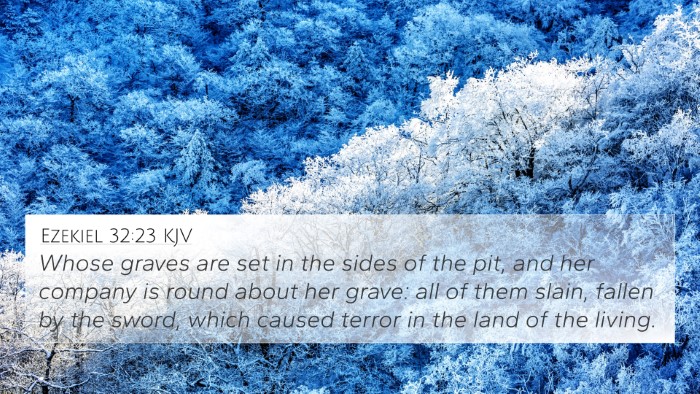Understanding Isaiah 14:19
Verse Reference: Isaiah 14:19 - "But thou art cast out of thy grave like an abominable branch, and as the raiment of those that are slain, thrust through with a sword, that go down to the stones of the pit; as a carcase trodden under feet."
Overview of Isaiah 14:19
The passage of Isaiah 14:19 serves as a striking metaphorical illustration of judgment, specifically addressing the downfall of Babylon and its king. This verse depicts the ultimate humiliation of a once-mighty ruler who now faces the consequences of pride and rebellion against God.
Commentary Insights
-
Matthew Henry:
Matthew Henry highlights the imagery used in this verse to symbolize utter disgrace and defeat. The grave signifies a place of respect and rest; however, being cast out of it suggests a complete loss of dignity. The language of being "thrust through with a sword" indicates violent rejection and death, emphasizing the stark contrast from the former glory.
-
Albert Barnes:
Albert Barnes observes that this verse connects to the theme of divine retribution. He remarks on the fate of those who oppose God, illustrating how their end is met with scorn. It emphasizes that being treated as "an abominable branch" denotes being viewed with contempt, suggesting God’s wrath toward the arrogant.
-
Adam Clarke:
Adam Clarke points out the grave consequences of pride, using this verse to warn against the arrogance that often leads to one's downfall. He explains that the “carcase trodden under feet” reflects total degradation and loss of honor, which serves as a reminder of God’s sovereignty in administering justice.
Cross-References to Isaiah 14:19
Isaiah 14:19 connects with various biblical themes and warnings, reflecting a broader narrative in Scripture about pride, judgment, and the consequences of rebellion against God.
- Revelation 20:10: Describes the ultimate defeat of Satan, paralleling the idea of downfall present in Isaiah 14:19.
- Ezekiel 28:17: Highlights the pride of the King of Tyre, illustrating similar themes of downfall due to pride.
- Proverbs 16:18: "Pride goeth before destruction," reinforcing the principle evident in Isaiah 14:19.
- Luke 10:18: Jesus mentions seeing Satan fall from heaven, echoing themes of judgment reminiscent of Isaiah's prophecy.
- Obadiah 1:3-4: Warning against pride and its destruction reflects the fate of those like Babylon.
- Jeremiah 51:58: References the destruction of Babylon, recapturing the essence of Isaiah's condemnation.
- 2 Thessalonians 2:8: Talks about the lawless one being revealed and ultimately destroyed, akin to the fall foretold in Isaiah.
- Isaiah 47:1-3: Discusses the humiliation of Babylon, correlating with the disgrace spoken about in Isaiah 14:19.
- Psalm 37:20: Explains the ultimate fate of the wicked, much like the warnings given in Isaiah.
- 1 Peter 5:5: Suggests that pride leads to degradation, further implying that humility is valued by God.
Thematic Connections and Cross-Referencing
This verse is intrinsically linked to several significant biblical themes concerning:
- Divine Judgment: The principle that God judges nations and leaders who defy Him is a recurring theme.
- Pride and Humility: The consequences of pride are illustrated throughout Scripture as leaders fall.
- The Ultimate Victory of God: Assurance that God reigns supreme over all earthly powers.
Applying the Insights
The insights derived from Isaiah 14:19 highlight the importance of humility in leadership and the truth that no prideful act goes unnoticed by God. Understanding the consequences of pride helps provide context when studying related verses through cross-references.
Tools for Cross-Referencing
To deepen your understanding of the Bible and its interconnectedness, utilize tools such as:
- Bible Concordance: An essential resource for finding themes and connections across various scriptures.
- Bible Cross-reference Guide: Useful for identifying related passages that reinforce the meaning of a verse.
- Cross-reference Bible Study Methods: Effective ways to study scripture by highlighting relationships between verses.
- Bible Reference Resources: Comprehensive materials that assist in exploring thematic connections.
Conclusion
Understanding Isaiah 14:19 within its broader context of biblical narrative enhances our appreciation of scripture and its teachings. By utilizing cross-references and engaging with various commentaries, we can comprehend the profound moral lessons embedded within these ancient texts.
